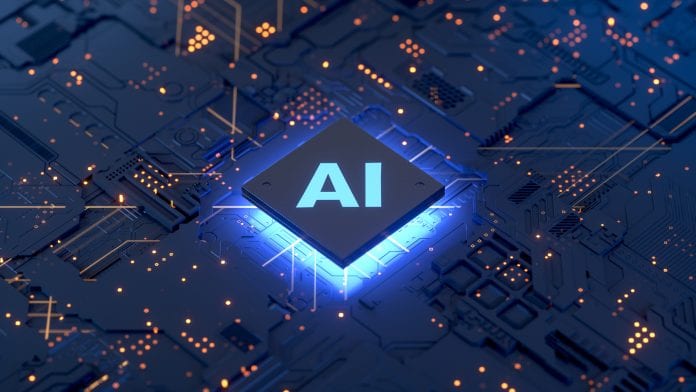
In this article, Amy Molten, Paediatrician and the Director of Medicine for Buoy Health, an Artificial Intelligence-powered healthcare navigation platform, discusses the vital role of emerging technology in healthcare and its ethical implications.
Pre-COVID-19, the healthcare industry was treading a slow but sure course toward digital transformation and Artificial Intelligence (AI). These days, it seems that healthcare (and many other sectors, for that matter) is sprinting in that direction – lunging to keep up with the lightning pace of emerging tech and equipping providers and patients with vital tools for public health and safety.
Dizzying as these tech shifts might feel at the moment, they are opening our eyes to AI’s potential and promise for the ever-evolving healthcare sector. Innovating at rapid speed and scale, AI capabilities are already bringing dramatic changes to the way we ‘do healthcare’ – not least when it comes to the advancement of care diagnostics.
AI-powered bots
Using a patient-centred, AI-powered chatbot illustrates these opportunities up-close. When deciding the next steps in care, patients often find themselves making important decisions on their own amidst difficult and confusing access points. During a pandemic, fear can make some of these decisions even more challenging. But imagine a world where a bot can analyse symptoms much like a clinician does when trying to consider a diagnosis for the individual and educate them in ways that helps them make better care-seeking decisions. The bot’s ability to gather and cross-factor relevant information in real time through the analysis of text, images and video – whether that’s a person’s history, medication, risk factors, or emotional state – empowers patients to present the broadest possible picture of his or her state of health in the diagnostic and triage process. Every bit of this information is relevant for care diagnostics. We are just at the beginning, and the road ahead is exciting.
The field of medicine driven by AI will celebrate not only the individual clinician’s knowledge and accomplishments, but the collective knowledge that tech, i.e. health-oriented bots, can share with us by distilling billions of patient data points and revealing patterns in human illness that remain undiscovered. Currently, a traditional diagnosis as we know it primarily relies on a single provider, or perhaps a small team, interacting with a patient. As such, it is wholly dependent on the individual training and focused experiences of these clinicians. While we are each trained to be careful, comprehensive, and maximally knowledgeable, this method is, by nature, limited in scope to the finite number of prior studies and patient interactions, and potentially biased in both education and practice.
Medical ethics
As it turns out, AI’s power to aggregate data, distil findings, and educate the healthcare industry has already manifested itself in tech’s response to the pandemic. Simple adjustments to AI infrastructures made a pivot toward something as serious and pressing as COVID-19 relatively straightforward. By layering in symptom, testing, self-isolation, and triage guidance, AI has been able to support our nation’s targeted mitigation efforts to minimise spread, preserve health system functioning, and protect healthcare personnel.
Both during and beyond COVID, however, AI confronts health providers with some sobering implications and reflections for medical ethics. Our creativity in this moment will be a useful contribution to a layered approach to healing our suffering health system. But to build a brighter healthcare future and effectively trailblaze its AI-driven tech path, we must use our moral imagination while rigorously reinforcing and protecting our ethical standards.
Some specific ethical considerations that come to mind are patient confidentiality, the role that the bot may play in the diagnostic journey, and the risk of potential biases in the data used by machine learning algorithms.
The bias issue, in particular, cannot be overstated-if a bot lays its diagnostic foundation on biased data points, it can exacerbate already intolerable public health disparities that exist in the medical field. Human cognitive bias in clinical medicine is a well-described phenomenon, but algorithmic bias can have untoward consequences at an exponential scale. If we set the foundation correctly now, we can create an irreplaceable tool for new and valuable insights.
Thus, AI provides the healthcare industry with an incredible opportunity – it reminds us to identify and dismantle current biases so that, through the power of data and machine learning, we can visualise and eradicate future injustices and blind-spots from the healthcare system.
Promise and potential aside, patients and their healthcare providers still wonder if AI will really be able to match the quality and personalisation of care provided by humans. Of course, AI will never be a substitute for the human interaction that is so critical to the healthcare journey, but insofar as AI is used as a tool to bolster the doctor-patient relationship, it will actually improve the personalisation of healthcare, not diminish it.
There is so much more to quality and personalisation in healthcare than we think. Patients do not just want a doctor to listen to them (although this is critical). They want a doctor to really understand them – not just in the moment, but as a whole person on a lifetime mental and physical journey. Large-scale adoption of AI tools and analytics can help meet that need, enabling us to see each patient as both a unique, complex individual, and as part of a massive human race that is still only minimally understood. As AI and healthcare learn together, the quality of the patient experience will only improve.
Insights in this article have been taken from the report AI in Healthcare: Perspectives on a Changing Sector from The AI Journal.
Amy Molten
Paediatrician and Director
Medicine for Buoy Health
























